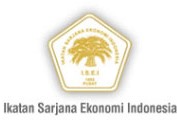The Impact of Covid-19 on Tax Compliance Behaviour Among Malaysian Taxpayers
(1) Universiti Teknologi MARA Melaka
(2) Edith Cowan University
(3) Universiti Teknologi MARA Melaka
(4) Universiti Teknologi MARA Melaka
Abstract
The unexpected Covid-19 crisis presents major challenges to Malaysian’s revenue administrator due to worsening economic conditions as they anticipated growing in tax arrears, loss reporting by business and increasing in tax non-compliance and tax evasion. Therefore the objective of this study is to investigate the impact of the crisis on tax compliance and look at the willingness of the taxpayer to ensure the survival of the country while they themselves are facing financial uncertainty due to the pandemic. Adopting convenient sampling method, a survey was conducted among taxpayers in the south region of Malaysia. The findings show that 28.6% of respondents have deferred their tax e-filing and tax payment during the Covid-19 crisis. Nevertheless, those who have filed, make an early submission with intention to get tax refund in facing potential income reduction. Interestingly, 59.3% of respondents are still willing to pay tax, during and after the Covid-19 period at same marginal tax rate. In conclusion, this study provides important input to the tax administrator on the likelihood of future shortfalls in tax collection and suggests how to minimize the anticipated negative effects of the pandemic.
Keywords
Full Text:
PDFReferences
Bobek, D., Roberts, R., & Sweeney, J. (2007). The Social Norms Of Tax Compliance: Evidence From Australia, Singapore, And The United States. Journal Of Business Ethics, 74(1), 49-64.
Brondolo, J. (2009). Collecting Taxes During An Economic Crisis: Challenges And Policy Options. IMF Staff Position Note.
Castille, C., & Buckner, J. (2018). Examining The Relationship Between Machiavellianism And Unethical Pro-Organizational Behavior. J Bus Ethics, 149, 919–930.
Chaudhuri A. (2011). Sustaining Cooperation In Laboratory Public Goods Experiments: A Selective Survey Of Literature. Experimental Economics, 14(1), 23-37.
Cherry, K. (2010). What Is Social Exchange Theory. Psychology.
Clift, B. (2009). French Economic Patriotism: Legislative, Regulatory And Discursive Dimensions. PSA Annual Conference.
Gbegil, D., Adebisi, J., & Tosin, B. (2017). Managing Economic Recession Through Effective Tax Collection: The Nigerian Experience. International Research In Economics and Finance, 1(1), 72-81.
Jalili, A. (2012). The Ethics of Tax Evasion: An Islamic Perspective, in Robert W. McGee (Ed.), The Ethics of Tax Evasion in Theory and Practice. New York: Springer.
Konrad, K., & Qari, S. (2012). The Last Refuge Of A Scoundrel? Patriotism And Tax Compliance. Economica, 79(315), 516-533.
Lesnik, T., Kracun, D., & Jagric, T. (2000). Recession And Tax Compliance – The Case Of Slovenia. Inzinerine Economica -Engineering Economics, 25(2), 130-140.
Luttmer, E., & Singhal, M. (2014). Tax Morale. The Journal Of Economics Perspective, 28, 149-168.
Macgregor, J., & Wilkinson, B. (2015). The Effect Of Economic Patriotism On Tax Morale And Attitudes Toward Tax Compliance. Advances In Taxation, 20, 159-180.
Malaysian Institute Of Economic Research (MIER) (2020). The Economic Impacts Of Covid-19 (2020). https://www.mier.org.my/the-economic-impacts-of-covid-19/
Mcgee, R. (2012). The Ethics Of Tax Evasion In Islam : A Comment. School Of Business. Florida Interantional University, USA.
Morris, D. (2012). Tax Cheating Illegal – But Is It Immoral. University Of New York Press, Albany.
Murphy, K. (2008). Enforcing Tax Compliance: To Punish Or Persuade? Economic Analysis And Policy, 38(1), 113-135.
Prinza, A., Muehlbacher, S. & Kirchler, E. (2014). The Slippery Slope Framework On Tax Compliance: An Attempt To Formalization. Journal Of Economic Psychology, 40, 20-34.
Qari, S., Konrad, K., & Geys, B. (2011). Patriotism, Taxation And International Mobility. Public Choice, 151(3-4), 695-717.
Tang, T., & Chen, Y. (2007). Intelligence Vs. Wisdom: The Love Of Money, Machiavellianism, And Unethical Behavior Across College Major And Gender. Journal Of Business Ethics, 82(1), 1-26.
Ukaj, S. (2014). Tax Evasion And The Impact On Economic Growth. Acta Universitatis Danubius. Economica, 10(6).
Weber, T., Fooken, J., & Hermann, B. (2014) Behavioral Economic And Taxation. Working Paper N.41 – 2014.
Refbacks
- There are currently no refbacks.

This work is licensed under a Creative Commons Attribution 4.0 International License.






